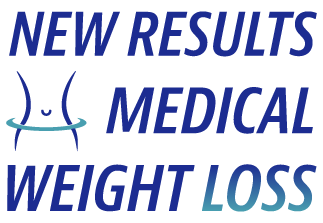Genetic Testing for Inherited Heart Disease: What You Need to Know
If you have a family history of heart disease, you may want to find out if you have inherited the same genes and whether heart disease is something you could face in the future. This where genetic testing comes in handy.
Basically, genetic testing is a process where your DNA is examined for changes that could cause heart disease later on in life. These DNA changes are known as pathogenic mutations — the word pathogenic means ”to cause disease”.
A physician or genetic counselor performs your genetic test in a laboratory. Your genes are closely examined to try and pinpoint variations that result in inherited disease. Most of the time, genetic testing is covered by insurance, based on your family history of the disease.
Overall, you can use genetic testing to determine the following:
- Get a better understanding of a heart disease diagnosis
- Pin down the cause of heart disease that exists in your family
- Predict the family members who may be at risk of developing heart disease
This way, you can adjust your lifestyle accordingly to delay the onset of inherited heart disease or manage the condition better. You can also look into preventative treatments to possibly avoid developing the disease altogether.
What Exactly Does a Positive Result Mean?
The results for your genetic testing can take anywhere from a few weeks to a few months to process. There are three types of results you can expect: positive, negative, and inconclusive. So, what does a positive test result really mean?
- Genetic experts are confident that a gene mutation has been identified and is linked to inherited heart disease
- All family members who carry this same gene mutation are at risk of developing a heart condition
- You and other family members are at risk of passing on this gene mutation to your children
- Follow-up appointments with a cardiologist are very important for all family members carrying the gene mutation
Family members who don’t carry the gene are not at risk of developing a heart condition. They cannot pass on the family gene to their children, either. However, these family members should still closely monitor their lifestyle choices and level of health as they age.
What a Genetic Test Cannot Tell You
Genetic testing for heart disease cannot predict the onset of disease or its severity. Also, a positive test result does not automatically mean you will develop the disease.
It’s not a death sentence. Rather, it shows that you are at risk of developing heart disease. But certain lifestyle choices and preventative measures could prevent its onset.
Negative Results
If you receive a negative or inconclusive test result, this doesn’t mean you won’t develop the condition, either. A negative test result merely rules out a definitive cause in your genes. You may still be at risk of developing heart disease based on many other lifestyle factors that have nothing to do with genetics.
Who Should Undergo Genetic Testing for Heart Disease?
Almost anyone can choose to undergo genetic testing for all types of diseases and conditions. But there are a particular few who may benefit from better understanding their genes, such as:
1. A Person Born With a Heart Defect
If you already have a heart problem or live with heart disease, genetic testing is beneficial. This way, you can discover more about your particular condition. You can also uncover the cause of the disease, and learn how to better manage your health.
If you have recently suffered an unexplained cardiac arrest or seizure, genetic testing can be really helpful. The same goes for those with an enlarged heart or heart failure in those aged 60 or younger.
2. Siblings, Children, and Parents of Those With Heart Disease
If no one else in your family has suffered from heart disease, but you have recently been diagnosed, your close relatives could benefit from testing.
It’s good to learn whether your siblings, children, or even your parents carry the same gene mutation. This way, they will have the knowledge that heart disease is hereditary and they can prioritize their health accordingly.
It also helps you to understand why you developed a heart condition, i.e. whether it’s caused by genetics or your lifestyle choices.
3. Relatives of a Person Who Suddenly Died From Cardiac Arrest
If a close family member has suddenly passed away due to cardiac arrest, despite not having any obvious health issues, this is cause for genetic testing. All close family members should be genetically tested for underlying heart disease that they may not know about.
This is especially important if the person was 40 years old, or younger. Genetic testing is the best way to isolate the cause of their sudden death. And most of the time, sudden death is caused by a serious heart problem.
A few other good candidates for genetic testing include:
- Those who suffer from unexplained fainting or seizures – even after a neurological evaluation
- If you’ve had a pacemaker fitted at the age of 50 or younger
- If you’ve suffered from heart failure but survived resuscitation at the age of 60 or younger
- If you have an irregular heartbeat, i.e. heart arrhythmia
- If you’ve suffered a stroke or early heart attack at the age of 55 (for men) and 65 (for women)
- If you have a history of high cholesterol that has gone untreated for many years
When it comes to inherited diseases, there is a general assumption that 50% of family members will inherit and develop the disease. However, this is not an accurate assumption. With genetic testing, you can get more specific results that pinpoint specific relatives who are at greatest risk.
Get Your Weight and Health In-Check
If you’ve recently been diagnosed with heart disease, your diet, and other lifestyle choices are extremely important in managing your condition.
New Results Medical Weight Loss offers expert advice on how to better manage your health with the right diet. In addition to Genetic Testing for Heart Disease, we offer several weight loss programs, hormone therapies, and supplements to help you along the way. Learn more about our customized weight loss programs or contact us today.

